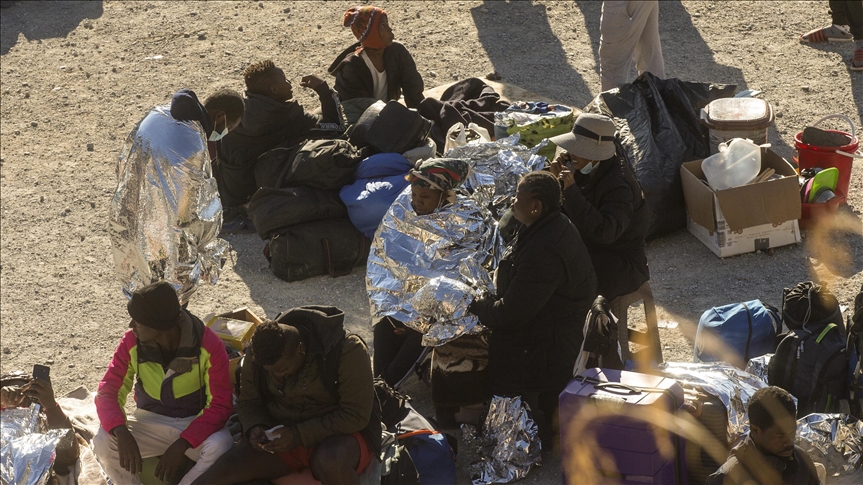Greece’s Deportations and Returns Law comes into effect despite criticism
Law to speed up deportations, impose penalties on NGOs that carry out migrant rescue operations without permission

ANKARA
Greece’s controversial Deportations and Returns Law has come into effect after it was published in the country’s Official Gazette on Sept. 4.
The bill submitted to the Greek parliament by Migration Minister Notis Mitarakis on Aug. 27 came under heavy criticism by left-wing Syriza and EU officials.
"Greece will not accept, as in the period 2015-19, to be the gateway to Europe for illegal immigration flows,” said Mitarakis.
However, Dunja Mijatovic, the Council of Europe commissioner for human rights, on Sept. 3 called for amending the bill as it does not comply with the minimum guarantees of international law for refugees.
“The Greek parliament should reconsider a legislative proposal currently being discussed, which would seriously hinder the life-saving work carried out at sea by NGOs, and their human rights monitoring capacities in the Aegean,” Mijatovic added.
Of the Greek opposition parties, Syriza, particularly, criticized the bill.
During a debate on the draft bill in the Greek parliament, Yiota Poulou, Syriza’s parliamentary spokeswoman, accused the ruling New Democracy party of resorting to “cheap nationalist” policies by using recent developments in Afghanistan as a pretext, Greek daily Avgi reported.
Yannis Mouzalas, former migration minister, on the other hand, warned that the country cannot become “the shield of Europe” by pushbacks, abominations, or by building walls in Evros on the Turkish border.
Prison sentences, fines
The Deportations and Returns bill reduces the grace period for voluntary deportations from 30 days to between a week and 25 days. It also makes it more difficult for migrants to appeal a deportation order with a stricter definition to what can be regarded as "humanitarian grounds” and reducing the period in which they can take legal action against such a decision to 30 days after it is issued.
Even more controversial in the bill is Article 40 that proposes fines on NGOs involved in life-saving rescue of migrants at sea if they conduct operations without coast guard permission.
According to the article’s first clause, international NGOs can only get involved in rescue operations, only if they and their members, associates, and employees are registered with Greek authorities, and when action by the Greek Coast Guard is not possible.
In case of violation of these conditions NGOs or their associates, employees, and members can get up to a one-year prison sentence, which can be increased to at least three years in case of an accident during a rescue operation.
Furthermore, NGOs violating the provisions could also face a fine of up to €6,000 ($7,097) and an individual up to €1,000 ($1,183).
If violations are repeated, fines can be doubled and registration of concerned NGOs and individuals be canceled, which makes their operation in the country illegal.
Anadolu Agency website contains only a portion of the news stories offered to subscribers in the AA News Broadcasting System (HAS), and in summarized form. Please contact us for subscription options.





